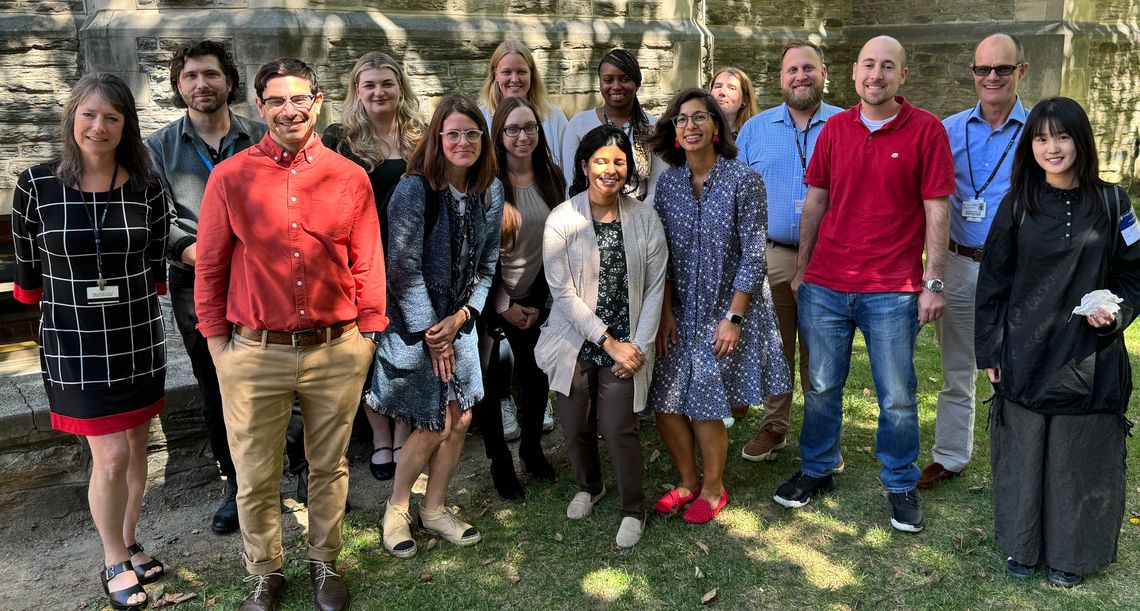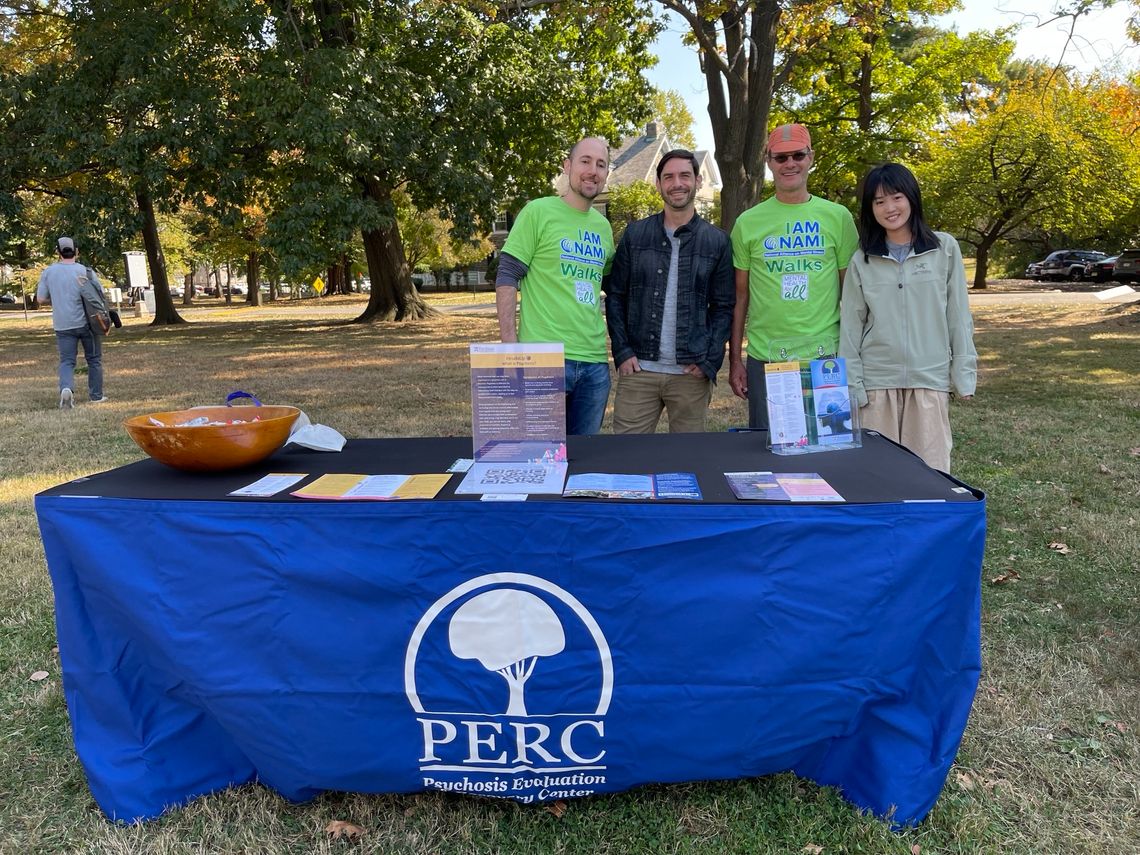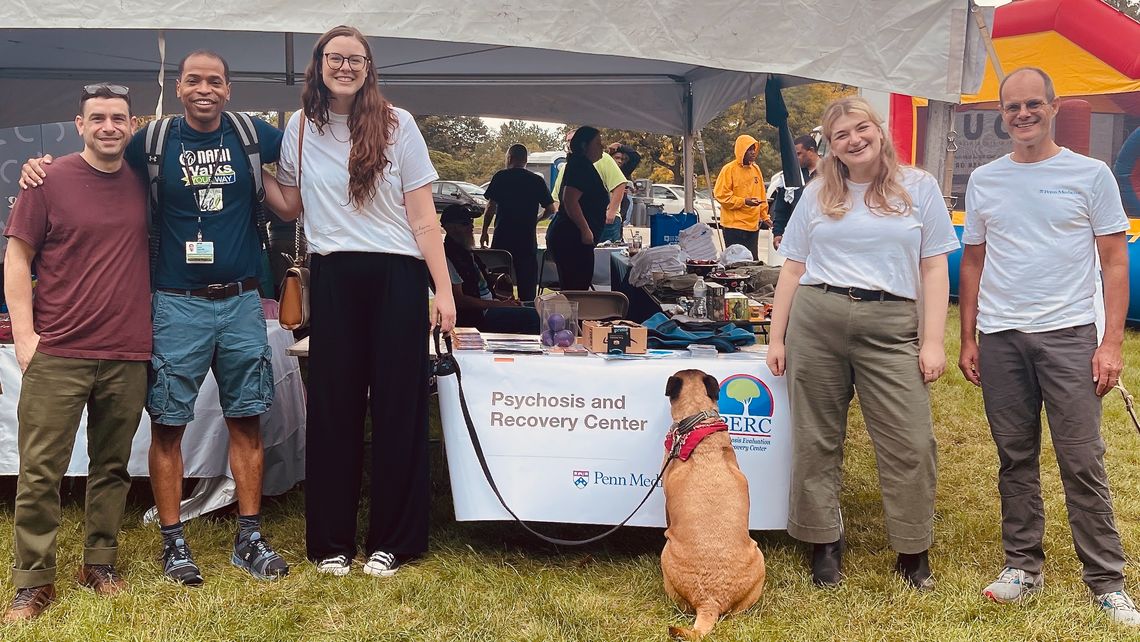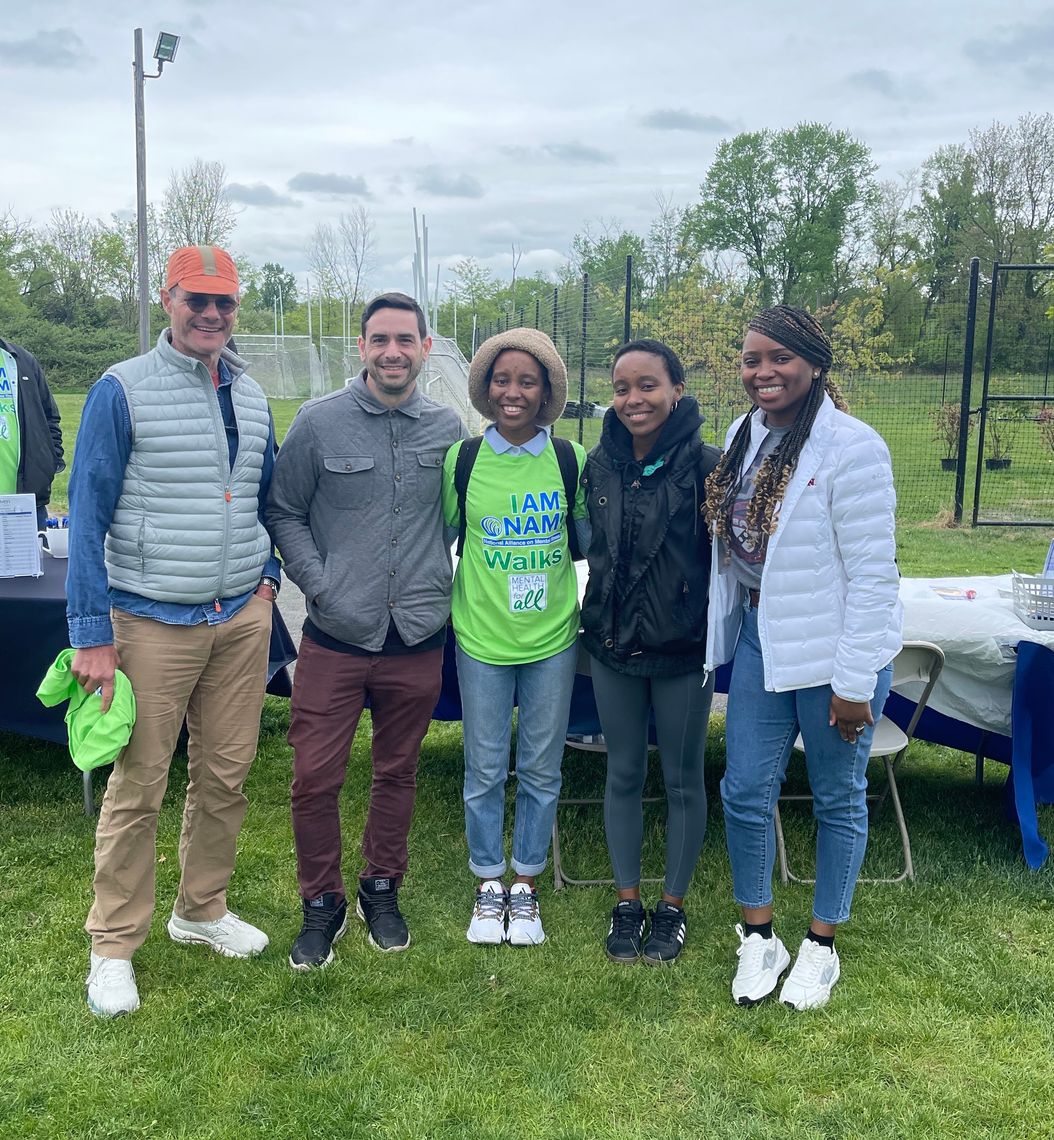Psychosis Evaluation & Recovery Center (PERC)
About the Program
Our multi-disciplinary program offers consultations on diagnosis, treatment, support and skill development for adolescents and young adults (ages 16-30 years) who exhibit warning signs of emerging psychosis or early psychosis, and their families.
Our program's main goals are to:
- Stabilize symptoms
- Maintain cognition and functioning
- Optimize their well-being and daily functioning
- Foster their talents, skills, relationships, and vocations
Referred individuals are screened over the phone within 24-48 hours. For those appropriate for the program, an in-person assessment typically occurs within 7-14 business days.
For scheduling - please call 215-662-2826
For more information or questions, please email our team at PERCinfo@lists.upenn.edu
The initial, customized assessment typically includes the following:
- Interview and evaluation by a psychiatric expert in early psychosis.
- Standard physical and neurological examination, and blood work testing to detect possible medical disorders that may produce behavioral symptoms.
- Review of medical records, prior treatments and responses.
- Formulation and discussion of treatment and support plan.
Treatment
Prompt and effective treatment is crucial for the recovery and long-term outcome of an individual with signs of early psychosis. For interested participants and their family members, our center offers a six-month course of intensive multimodal personalized and group based interventions with the purpose of achieving maximal early improvement in clinical symptoms, cognition, and preservation of functioning.
Treatment plans may include the following interventions:
- Recovery Planning: The individual and the treatment team work collaboratively to develop a recovery plan that identifies goals and plans for services, and methods based on the individual’s needs and preferences.
- Cognitive Behavioral Therapy (CBT)/Case Management: A Master’s Level Specialist provides a form of CBT developed to treat psychosis by Aaron Beck and colleagues.
- Psychopharmacology: The program provides ongoing evidence-based psychopharmacology for early-episode psychosis, with emphasis on minimizing medication exposure and side effects.
- Cognitive Remediation: The remediation intervention facilitated by a licensed psychotherapist and doctoral student administers two weekly 60-minute sessions in a small group format based on BrainHQ modules from Posit Science Inc.: 1) Attention; 2) Speeded Processing; 3) Memory; 4) People Skills; 5) Intelligence. All interventions are delivered via a secure internet login allowing for practice from home on a daily basis.
- Multi-Family Education and Support Group: Ongoing monthly meetings provided by an experienced clinician provide education, support and coping strategies for families.
- Recovery-Oriented Cognitive Therapy for Families: A closed, 12-week group for families aimed at improving families understanding, coping, and communication skills with their family member in the early stages of psychosis.
- Supported Employment Educational Services: A dedicated support person establishes plans for functional goals and recovery with the participant. The support person assists possible return to school, access to jobs and training programs.
- Peer Support Services: Individuals in recovery offer peer support and education services in the community to young persons currently experiencing psychosis in an effort to help maintain functioning.
- Telehealth Services: Optional telehealth services available for therapy and case management appointments.
- Substance Use Treatment: We coordinate with local substance use treatment programs to provide substance use treatment to participants that is also integrated with other services.
- Participant Process Group: The program offers ongoing monthly process groups that are facilitated by a licensed psychotherapist to support psychosocial skill development & functioning.
Billing/Insurance
Parts of this program may be covered by your insurance carrier.
The program is further supported by a Mental Health Block Grant provided through the State of Pennsylvania (for Pennsylvania residents only).
For non-Pennsylvania residents, please contact us regarding other options. Individual parts of the comprehensive services are available on a fee for services basis.
Our Team
Providers
Aaron Alexander-Bloch, MD, PhD
Amenia Miller, M.S.Ed, M.Phil.Ed
Postdoctoral Fellow
Clinical Psychology Interns/Externs
Clinical Coordinator
Supported Employment & Education Specialist
Educational Resources
If you are interested in viewing the presentations from our Family Support Groups, please click here.
For more information or questions, you may also email our team at PERCinfo@lists.upenn.edu.
Our outreach effort informs educators, primary care providers, mental health workers, counselors and the public about warning signs of psychosis, and generates referrals.

NAMI Walks Philly 2024
We did it! Once again, thank you all for being champions in the fight for mental health awareness. We couldn’t have done it without you. In our shared mission we have surpassed our goal, raising a total of $ 3,325 to continue to raise awareness, provide support and advocate for individuals and families affected by mental illness.

NAMI Walks Philly 2023

NAMI Walks MontCo 2024

HeadsUp - Focused on Ending the Stigma Around Psychosis
Back to Top

